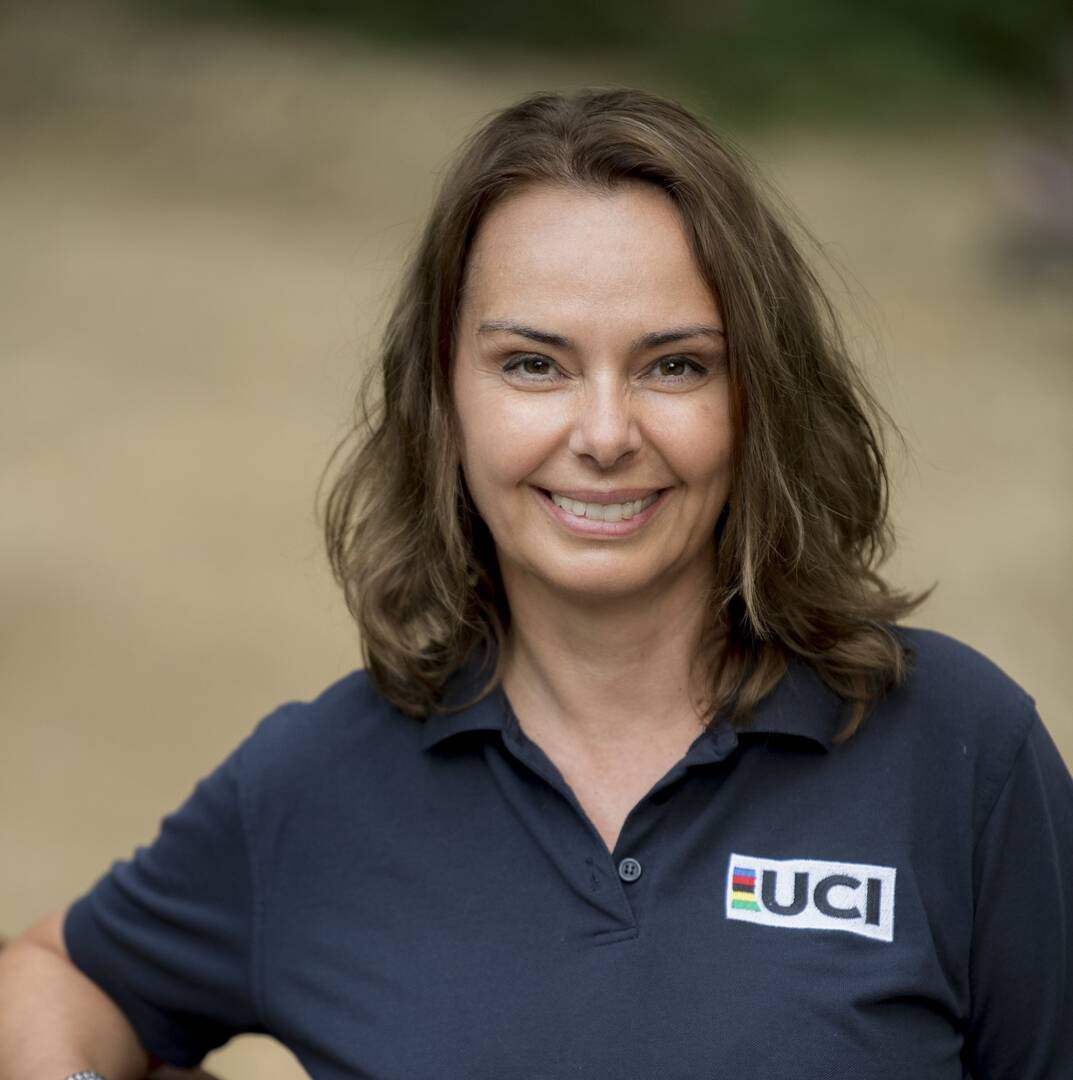Csilla Tam, who works for the Hungarian, European and International Cycling Federation, is also a participant of the university’s English-language training.
Last week we reported that a new two-semester postgraduate English-language course titled International Sports Diplomacy has been launched at the Hungarian University of Sports Science. The program is lead by Dr habil Judit Kádár, Director of the International Relations Centre.
Twenty students have started the course which ends with a complex, problem-solving exam, and it is important to underline that students are assisted by an international teaching staff with considerable experience. Students have come from Ghana, Cameroon, Namibia, Morocco, Sri Lanka, Pakistan, Bangladesh, the Philippines, Croatia, Greece, Montenegro, Spain and four from Hungary. One of them is Csilla Tam.
"I was studying mediation at the SOTE medical university during the coronavirus epidemic, but even then I had already been looking for a sports diplomacy course," said Csilla Tam, who speaks excellent French and is a sports advisor and international relations officer at the Hungarian Cycling Federation. “I was delighted to learn about the sports diplomacy course at the Hungarian University of Sports Science. I was particularly happy that the course is in English, because I wanted to improve my English skills anyway. Learning from internationally renowned lecturers in six months is a very valuable way to gain knowledge. This is what made this course even more attractive to me."

Csilla Tam also works with the European and International Cycling Federation (she was a judge at the 2016 Rio Olympics), and has been working abroad since she was very young, and has a wealth of experience in learning about other cultures.
"That's why I'm looking forward to April at the university’s international sports diplomacy training when we'll have two weeks to meet some of our trainers and fellow team members in person. We can talk to people from other countries and continents, learn from each other and the world opens up. There's so much more outside of our small, narrow world."
Photo: Zoltán Vanik
Archive
-
2025
-
2024
- 2024 December (5 articles)
- 2024 November (8 articles)
- 2024 October (16 articles)
- 2024 September (18 articles)
- 2024 August (14 articles)
- 2024 July (13 articles)
- 2024 June (19 articles)
- 2024 May (18 articles)
- 2024 April (18 articles)
- 2024 March (14 articles)
- 2024 February (10 articles)
- 2024 January (4 articles)
-
2023
- 2023 December (8 articles)
- 2023 November (15 articles)
- 2023 October (18 articles)
- 2023 September (9 articles)
- 2023 August (11 articles)
- 2023 July (15 articles)
- 2023 June (11 articles)
- 2023 May (17 articles)
- 2023 April (15 articles)
- 2023 March (8 articles)
- 2023 February (5 articles)
- 2023 January (10 articles)
-
2022
-
2021
-
2020
-
2019
-
2018
-
2017
-
2016
-
2015
-
2014



